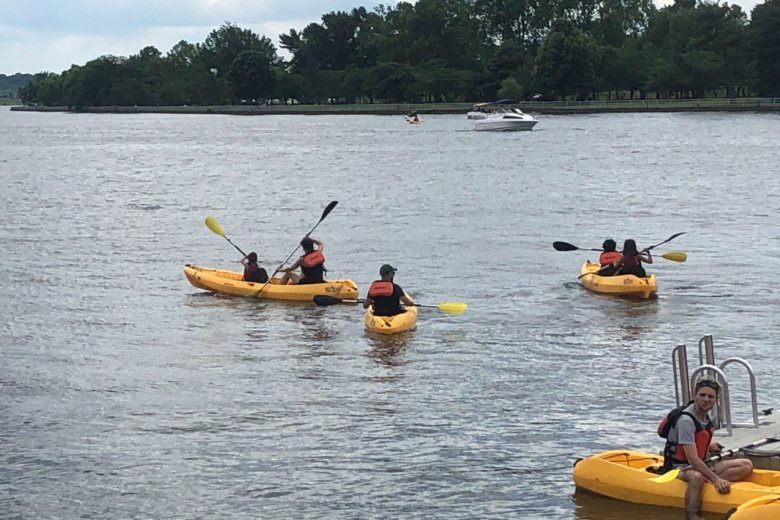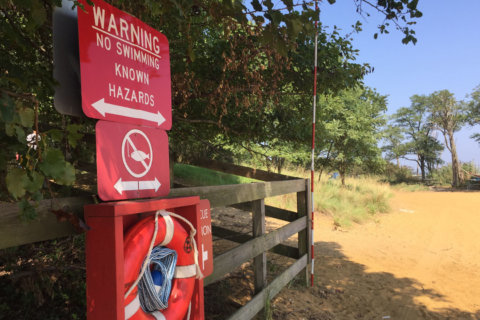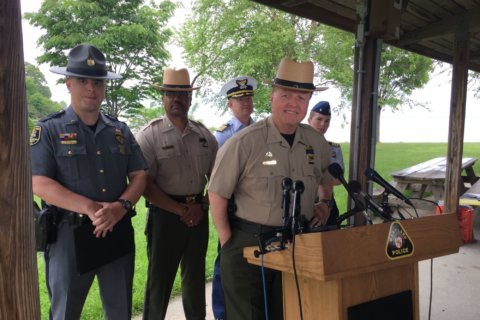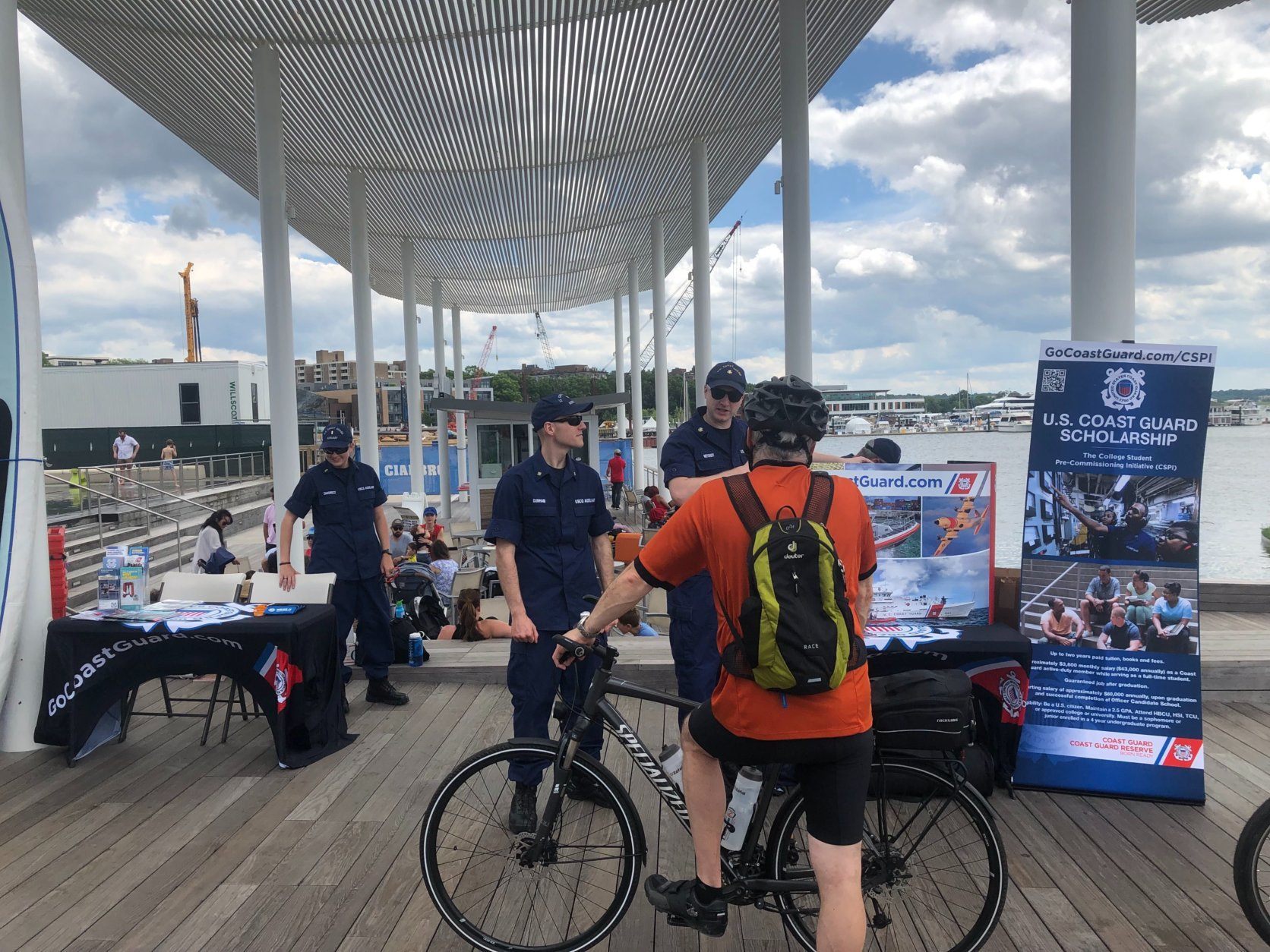
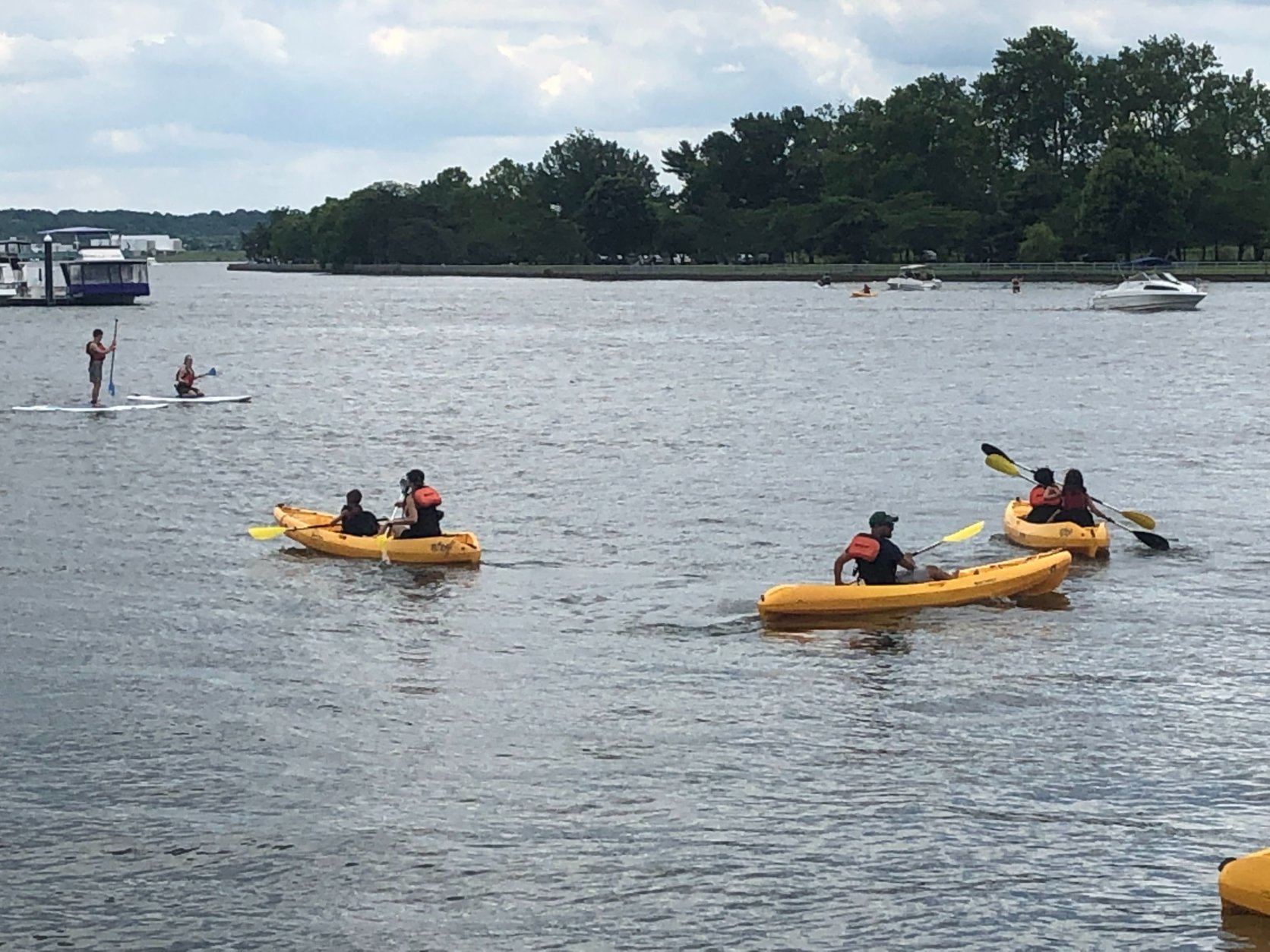
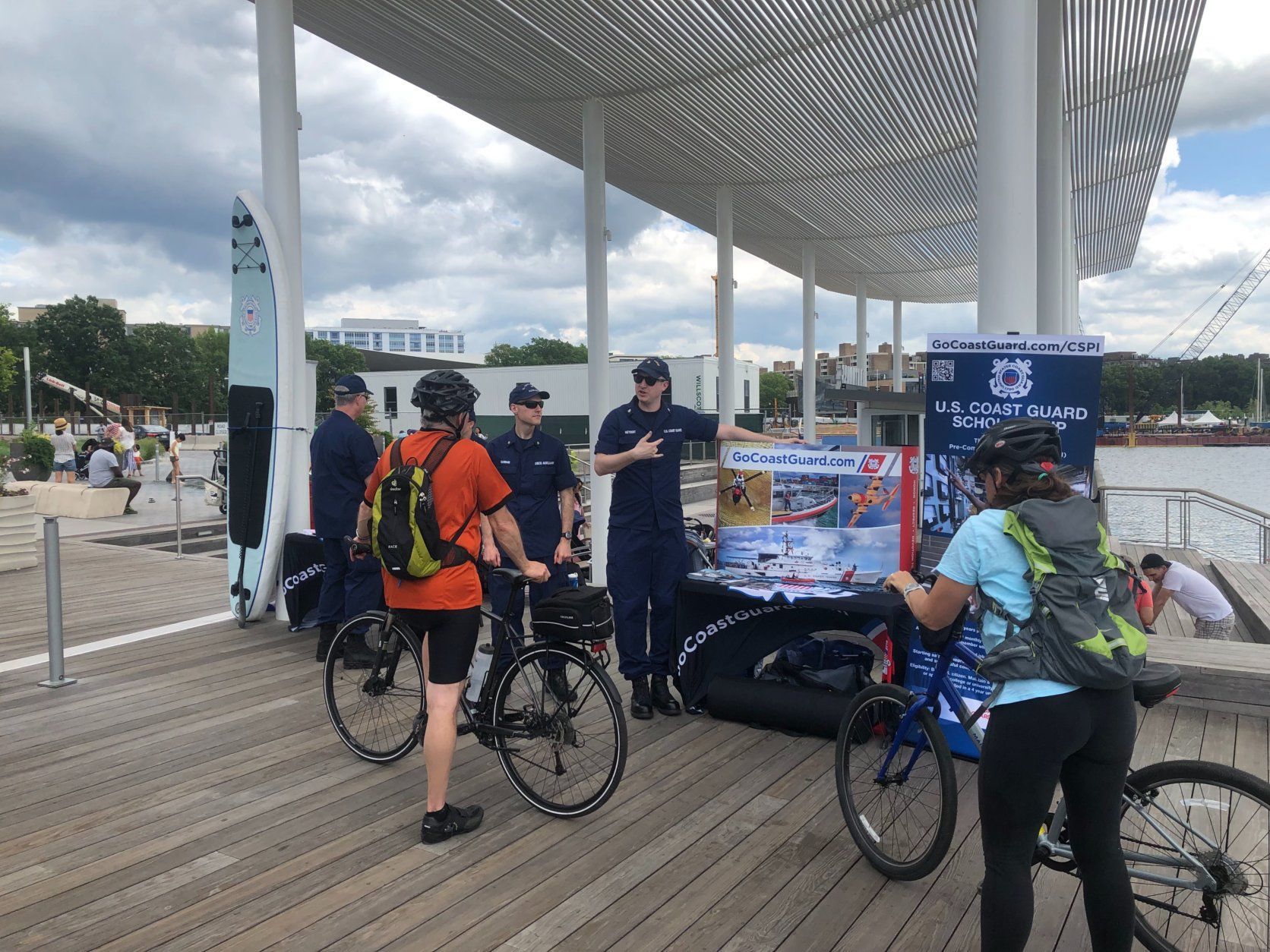
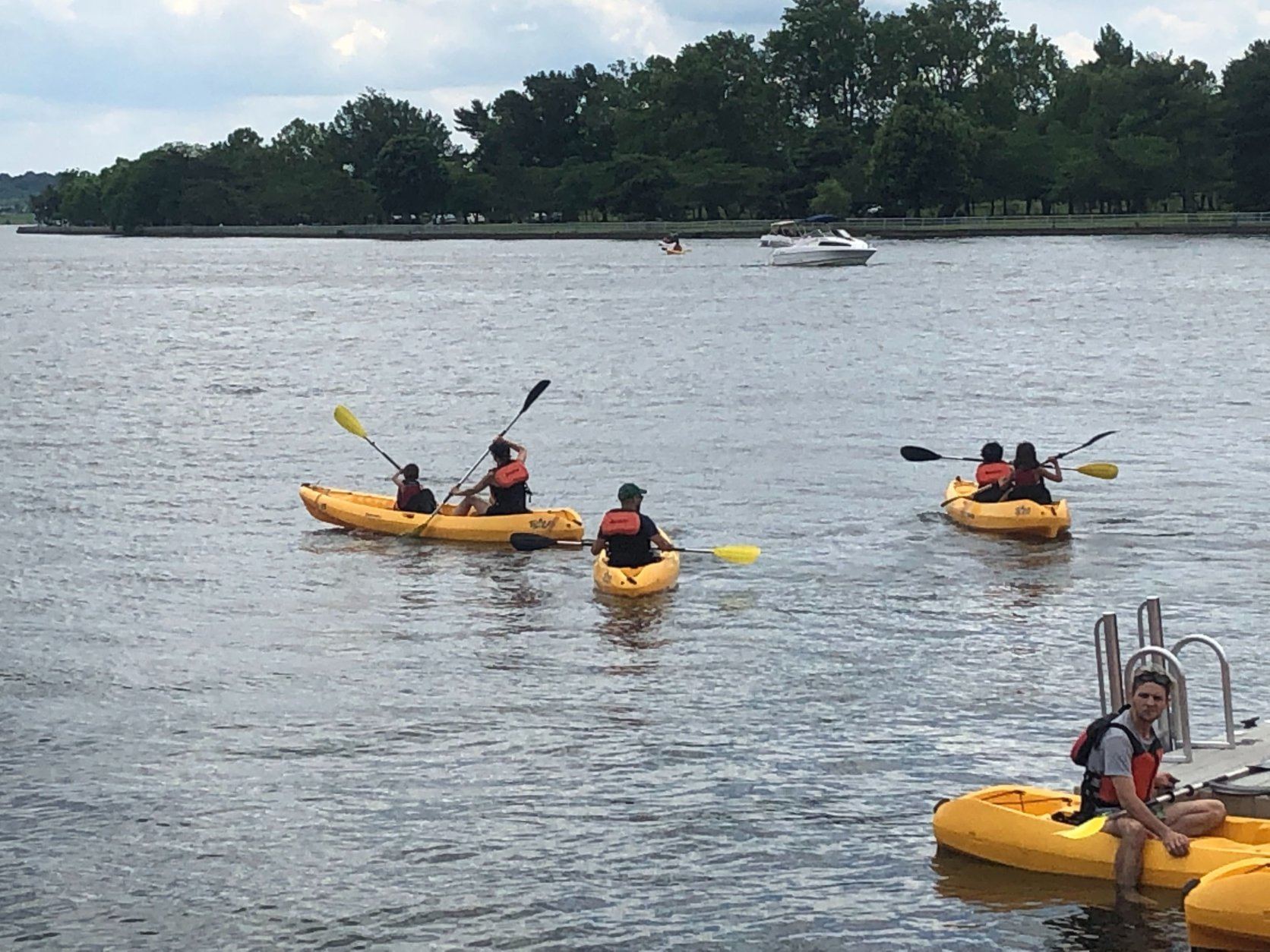
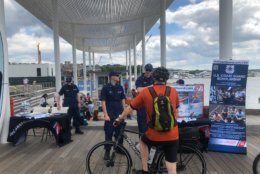
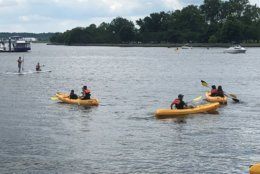

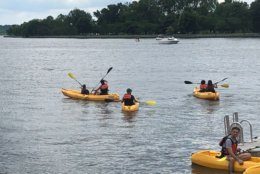
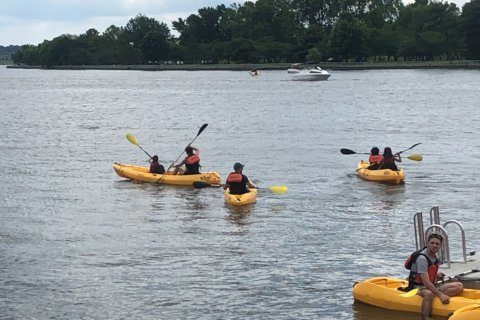
As the D.C. area enters prime boating season, the U.S. Coast Guard is reminding boaters to take steps to make sure a day out on the water doesn’t end in tragedy.
“D.C. is a water city. We have a lot recreational boating here,” said Dan Dunham, spokesman for the U.S. Coast Guard Auxiliary 25-01 in D.C.
He said that the most important tip is to make sure that everyone on a boat, whether it’s a paddle board or pontoon boat, has on a life jacket. Dunham said often times, people have the misconception that if they are a skilled swimmer, they don’t need to wear a life vest.
“The fact is a life jacket is really designed to help you in a situation where you are not able to rescue yourself,” Dunham said.
According to recreational boating statistics, Dunham said a majority of the people who die in boat accidents drown while not wearing a life jacket.
He added that life vests should also be kept on at all times because when a situation arises where a person wishes they had one on, there won’t be time to put it on. There are vests designed for all types of activities, from paddle boarding to jet ski riding. Just make sure that only Coast Guard-certified vests are purchased.
For boat owners, Dunham recommends getting a free safety check of the vessel offered by the Coast Guard. During checks, the boat’s condition and safety gear will be inspected. All those who pass will be given a sticker, certifying that it has passed the inspection.
“If you don’t pass, it’s no harm, no foul,” Dunham said.
Those who fail will be instructed on what they need in order to pass.
For those who don’t own boats, it may be enticing to rent one. Dunham said that before heading to the dock, do some homework. Boaters should familiarize themselves with the rules of boating and should consider taking a safe boating course offered by the Coast Guard Auxiliary.
He encourages all those heading out on the water to file what they call a “float plan.”
“I’m going to tell somebody that I know and I trust, ‘Here’s where I’m going; here’s when I am going to be out; here’s who’s with me; and here’s when I think I am going to be coming back,'” he said.
Also, even if you’re not planning on going far from land, check the weather before setting sail to determine if a trip out on the water should be shorter, or if it should even happen at all.
There are also considerations boaters should take in case they do find themselves in trouble. One thing is to not depend on a cellphone for getting help.
“Cellphones are not a reliable way to contact the Coast Guard,” he said.
That’s because phones can become inoperable if they get wet, and there may not be reception.
Believe it or not, the best way to call the Coast Guard for help when on the water is to use a VHF radio. Tune it to channel 16, which is always being monitored for distress calls by the Coast Guard.
When a Coast Guard vessel starts searching, it helps to spot those in distress if flares are fired. Reflective stickers can help rescuers see a boat in trouble, as well; and blowing a whistle is more effective than yelling.
“Shouting is less effective than you might think. From in the water, it sounds loud, but for somebody who’s in a boat who’s looking for you, it’s hard to hear. So bring a whistle,” he said.
Finally, boat sober.
“Do not drive and operate a vessel inebriated. We really cannot stress that enough. It is very dangerous,” Dunham said.

